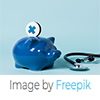A Patient’s Perspective on Basic and Applied Research in Rare Disease
By Stefanos Koutsoukos
 In the summer of 2017, I had the opportunity to join the National Human Genome Research Institute at the National Institutes of Health in Bethesda, Maryland, and participate in rare disease research. I joined a group studying two rare inborn errors of metabolism named methylmalonic and propionic acidemia. Both diseases present major challenges to patients and their caregivers. Patients with these inborn errors of metabolism are on highly restricted diets of which limit protein intake. The disease, if not managed correctly, can present major complications to patients which can often lead to hospitalization.
In the summer of 2017, I had the opportunity to join the National Human Genome Research Institute at the National Institutes of Health in Bethesda, Maryland, and participate in rare disease research. I joined a group studying two rare inborn errors of metabolism named methylmalonic and propionic acidemia. Both diseases present major challenges to patients and their caregivers. Patients with these inborn errors of metabolism are on highly restricted diets of which limit protein intake. The disease, if not managed correctly, can present major complications to patients which can often lead to hospitalization.
Having the opportunity to work in rare disease research has always been an aspiration of mine as a rare disease patient myself. I was born with ichthyosis, like many now reading this article. What type of ichthyosis? Well, I have a currently undiagnosed subtype of the disease, but I’ll get into more on that later.
My interest in rare disease research evolved with my education in biochemistry, as a senior at the University of Maryland, College Park. My exposure to the life sciences has inspired an interest in the underlying biology of my disease and lead me to pursue rare disease research and efforts in rare disease advocacy.
I believe it is important to discuss the definition of a rare disease before continuing my discussion and personal relationship with the topic. A rare disease, also referred to as an orphan disease, is one that affects fewer than 200,000 individuals in the United States. The definition was formalized by the 1983 Orphan Drug Act which incentivized pharmaceutical and biotechnology companies to develop treatments for rare diseases. There are more than 7,000 rare diseases, which affect about 30 million Americans, the subtypes of ichthyosis being included in that group. Rare disease is really not that rare!
So now I’d like to circle back to my ichthyosis diagnosis I mentioned earlier. Back in 2016, as I was gaining interest in studying my own rare disease, I decided to contact Dr. Keith Choate and his team at Yale University. Dr. Choate is currently constructing an ichthyosis registry, working to discover and characterize subtypes of the disease. I received my saliva kit in the mail and sent over my sample for genetic sequencing, an expensive experiment kindly provided at no cost to patients by Dr. Choate and his lab. Six months later, in December, I received a phone call from Ted Zaki, a medical student working on the project. I was excited to learn that my diagnosis was novel in its discovery. Ted asked my mom, brother, uncle, and maternal grandparents to provide saliva samples to further study the genetic mechanism of my subtype.
Fast forward to June of 2018 and the FIRST National Conference in Nashville, Tennessee. There, I had the opportunity to meet with Dr. Choate and Ted Zaki among many other world-renowned physicians in the ichthyosis community. They delivered what I considered to be exciting news by letting me know that they had only ever found my specific mutation in a few other families out of the many in the registry. If that isn’t rare, then I don’t know what is! I have yet to receive a clinical diagnosis as the Yale lab is still currently working on characterizing their novel discovery. Updates to come!
My involvement at the National Institutes of Health and journey through my own rare disease diagnosis has influenced my perspective on the patient’s power in rare disease research. I have come to realize that patients hold the real command in the advancement of the knowledge of their own rare disease. Providing samples including saliva, blood and skin, in addition to clinically relevant quality of life data improves the extensiveness of information from which research scientists have the ability to study and learn. A great resource that I often use to learn more about rare disease clinical trials is the clinicaltrials.gov website. The website, administered by the National Institutes of Health, publishes past and current clinical trials, which are easily searched by keywords related to a disease. Check out the website and search for a clinical trial near you! I urge patients of any and all rare diseases, as both a patient and scientist-in-training, to participate in the betterment of the understanding of the disease that affects your life and your loved ones so closely. Future development of novel treatments and cures depend so heavily on your participation.
I would love to hear your perspective on the topic of rare disease research and any other comments or questions you may have! Please do not hesitate to email me at koutsoukossa@nih.gov



